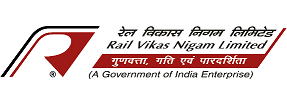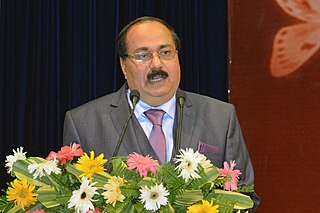Related Research Articles

Bhubaneswar is the capital and the largest city of the Indian state of Odisha. It is located in the Khordha district. The suburban region, especially the old town, was historically often depicted as Chakra Khetra and Ekamra Khetra. Bhubaneswar is dubbed the "Temple City", a nickname earned because of many temples which are standing there. In contemporary times, the city is a hub of sports, tourism and IT in the country.
Kalinganagar is a planned industrial town in Jajpur district of coastal Odisha, India. Kalinganagar is emerging to be major global hub in steel, power and ancillary products. A large number of steel plants including projects by Jindal Steel, VISA Steel and Tata Steel are in various stages of implementation.
The IDBI Bank Limited is a Scheduled Commercial Bank under the ownership of Life Insurance Corporation of India (LIC) and Government of India. It was established by Government of India as a wholly owned subsidiary of Reserve Bank of India in 1964 as Industrial Development Bank of India, a Development Finance Institution, which provided financial services to industrial sector. In 2005, the institution was merged with its subsidiary commercial division, IDBI Bank, and was categorised as "Other Public Sector Bank" category. Later in March 2019, Government of India asked LIC to infuse capital in the bank due to high NPA and capital adequacy issues and also asked LIC to manage the bank to meet the regulatory norms. Consequent upon LIC acquiring 51% of the total paid-up equity share capital, the bank was categorised as a 'Private Sector Bank' for regulatory purposes by Reserve Bank of India with effect from 21 January 2019. IDBI was put under Prompt Corrective Action of the Reserve Bank of India and on 10 March 2021 IDBI came out of the same. At present direct and indirect shareholding of Government of India in IDBI Bank is approximately 95%, which Government of India (GoI) vide its communication F.No. 8/2/2019-BO-II dated 17 December 2019, has clarified and directed all Central/State Government departments to consider IDBI Bank for allocation of Government Business. Many national institutes find their roots in IDBI like SIDBI, EXIM, National Stock Exchange of India, SEBI, National Securities Depository Limited. Presently, IDBI Bank is one of the largest Commercial Banks in India.

The National Bank for Agriculture and Rural Development (NABARD) is an All India Development Financial Institution (DFI) and an apex Supervisory Body for overall supervision of Regional Rural Banks, State Cooperative Banks and District Central Cooperative Banks in India. It was established under the NABARD Act 1981 passed by the Parliament of India. It is fully owned by Government of India and functions under the Department of Financial Services (DFS) under the Ministry of Finance.

Small Industries Development Bank of India (SIDBI) is the apex regulatory body for overall licensing and regulation of micro, small and medium enterprise finance companies in India. It is under the jurisdiction of Ministry of Finance, Government of India headquartered at Lucknow and having its offices all over the country.

Vibrant Gujarat, also referred to as Vibrant Gujarat Global Summit, is a biennial investors' global business event that is held in the state of Gujarat, India. The event is aimed at bringing together business leaders, investors, corporations, thought leaders, policy and opinion makers; the summit is advertised as a platform to understand and explore business opportunities in Gujarat. The summit's primary objective is to promote Gujarat as an attractive investment destination and to facilitate partnerships and collaborations across different sectors. Summit began in 2003 and is now held every two years.

The Ministry of Finance is a ministry within the Government of India concerned with the economy of India, serving as the Treasury of India. In particular, it concerns itself with taxation, financial legislation, financial institutions, capital markets, currency regulation, banking service, centre and state finances, and the Union Budget.

The Ministry of Micro, Small and Medium Enterprises is the ministry in the Government of India. It is the apex executive body for the formulation and administration of rules, regulations and laws relating to micro, small and medium enterprises in India. The Minister of Micro, Small and Medium Enterprises is Jitan Ram Manjhi.

Rail Vikas Nigam Limited (RVNL) is an Indian central public sector enterprise (PSU) which works as the construction arm of the Ministry of Railways for project implementation and transportation infrastructure development. It was incorporated in 2003 to meet the country's surging infrastructural requirements and to implement projects on a fast-track basis as well as for creating a Railway equipment construction company. RVNL is a Navratna PSU in India under the administrative control of the Ministry of Railways, Government of India.

The economy of Odisha is one of the fastest growing economies in India. According to 2023–24 economic survey, Odisha's gross state domestic product (GSDP) was expected to grow at 10.57%. Odisha has an agriculture-based economy which is in transition towards an industry and service-based economy.

The Department of Industries is a key government department that oversees industrial activity in the Indian state of Kerala. The DOI is a senior cabinet department led by a senior minister and team of 15 secretaries. The administrative head of the Industries & Commerce Department is the Principal Secretary. The Directorate of Industries & Commerce Department is located at Vikas Bhavan, Thiruvananthapuram, is headed by the Director. This is the functional arm of the department implementing various industrial activities of the departments. District Industries Centers are located in all district headquarters.

The Department of Industries, Investment Promotions and Commerce is one of the departments of Government of Tamil Nadu.

The Nepalese Ministry of Minister of Industry, Commerce and Supplies is a governmental body of Nepal to monitor and manage industries of the country.
The Industrial Promotion & Investment Corporation of Odisha Limited or IPICOL was incorporated on April 12, 1973 by the Government of Odisha to promote medium and large scale industries in the state by providing necessary support services including equity participation and long term financial assistance.

Make in India is an initiative by the Government of India to create and encourage companies to develop, manufacture and assemble products in India and incentivize dedicated investments into manufacturing. The policy approach was to create a conducive environment for investments, develop a modern and efficient infrastructure, and open up new sectors for foreign capital.
Public Sector Undertakings (PSU) in India are government-owned entities in which at least 51% of stake is under the ownership of the Government of India or state governments.These type of firms can also be a joint venture of multiple PSUs. These entities perform commercial functions on behalf of the government. Depending on the level of government ownership, PSUs are officially classified into two categories: Central Public Sector Undertakings (CPSUs), owned by the central government or other CPSUs; and State Public Sector Undertakings (SPSUs), owned by state governments. CPSU and SPSU is further classified into Strategic Sector and Non-Strategic Sector. Depending on their financial performance and progress, CPSUs are granted the status of Maharatna, Navaratna, and Miniratna.

Dr. Tapan Kumar Chand is an Indian mining veteran, executive, and author. He is the Resident Director of Vedanta Limited. He was the chairman cum managing director of National Aluminium Company. NALCO is the largest integrated aluminium unit in Asia and is also one of the largest aluminium complexes of the world. He has been in the mining and metal sector since 1982, earlier serving as the director commercial of Rashtriya Ispat Nigam Limited / Visakhapatnam Steel Plant and Director Personnel & Director I/c, of Central Coalfields Limited.
Punjab Agri Export Corporation Limited (PAGREXCO) is a government enterprise established by the Government of Punjab in the year 1997 as the nodal agency for agricultural export from the state of Punjab, India. The company works for export of fresh and processed agricultural produce, infrastructural development and policy implementation in the state. It is a subsidiary of Punjab Agro Industries Corporation.
References
- ↑ "Pravat Kumar Roul appointed new VC of OUAT". The Times of India . 9 September 2022.
- ↑ "Odisha govt announces financial aid for betel leaf, kewra farmers". Sambad . 17 September 2023. Retrieved 3 July 2024.
- ↑ "Farm equipment boost to agro service centres". The New Indian Express . 18 October 2018. Retrieved 3 July 2024.
- 1 2 "Odisha government signs pact to promote agriculture enterprises in 12 tribal districts". The New Indian Express . 22 August 2019. Retrieved 3 July 2024.